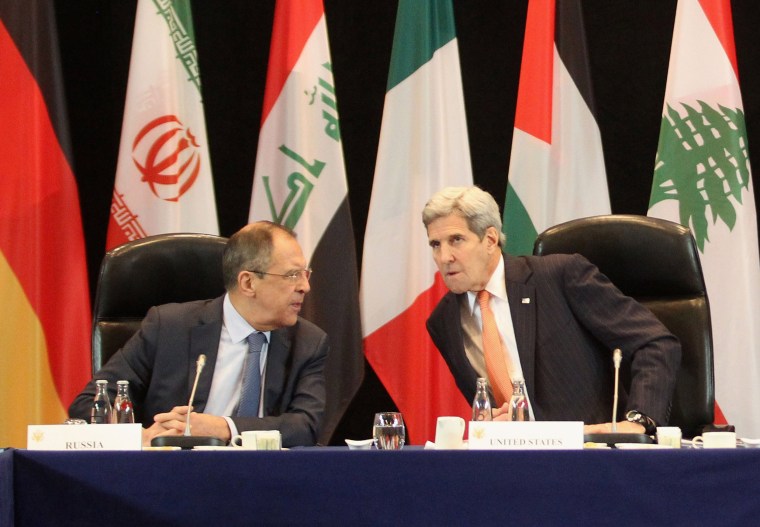Major powers were beginning a new round of Syria peace talks on Thursday focusing on calls for a ceasefire and access for humanitarian aid.
But with the Syrian opposition saying it cannot accept a truce in the current climate because it does not trust the Russians, diplomats saw little chance of progress at discussions in the German city of Munich.
A Western diplomat told Reuters that U.S. Secretary of State John Kerry wanted an immediate ceasefire in Syria — "all or nothing" — although the Russians have proposed a truce from the beginning of next month.
Russia's intervention on the battlefield on behalf of President Bashar al-Assad has swung the momentum of the fighting, allowing government forces to push the rebels on to the back foot and underlining Moscow's influence over the future of the five-year-old war.
Related: Turkey Under Pressure as Thousands of Syrians Amass at Border
The Syrian opposition and France have insisted that the United States should adopt a more committed approach to resolving the situation in Syria and put pressure on Russia to stop bombing rebel positions in support of the Syrian army.
As he met Kerry in Munich, Russian Foreign Minister Sergei Lavrov said Moscow had submitted proposals for implementing a ceasefire in Syria and was awaiting a reaction from international powers.
Kerry said he expected a "serious conversation" about all aspects of what was happening in Syria.
"Obviously, at some point in time, we want to make progress on the issues of humanitarian access and ceasefire," Kerry said.

The Munich meeting follows efforts to involve all sides in peace talks in Geneva that failed after the Syrian government launched a major military offensive backed by Russian air power.
But with Russian warplanes intensifying their efforts and Assad’s forces closing in on the city of Aleppo, the Munich talks have become a defining moment as to whether the diplomatic process can continue in the short term.
But a senior Western diplomat was pessimistic about what might be achieved in Munich, saying: "This meeting risks being endless and I fear the results will be extremely small."
At the same time, the United States was pressing allies to contribute more to the campaign against Islamic State that it says must be accelerated, regardless of the fate of diplomatic efforts to end Syria's civil war.
As he prepared to meet allied defense ministers in Brussels, Defense Secretary Ash Carter said Islamic State would have to be defeated "whatever happens with the Syrian civil war".
Further evidence of Russia's influence on the fighting emerged on Thursday, when Kurdish fighters, backed by Russian air strikes, overran a military air base that had been in the hands of the rebels since 2013.